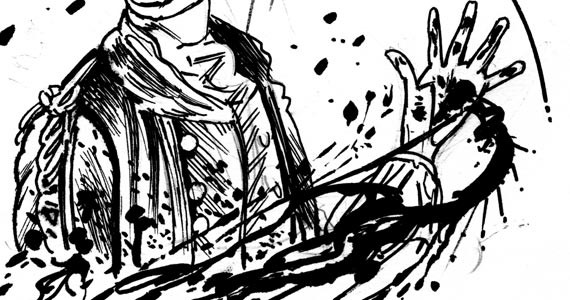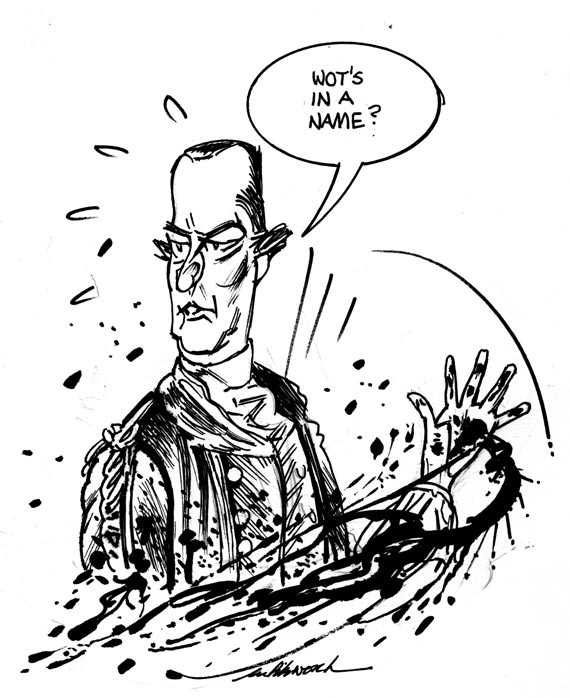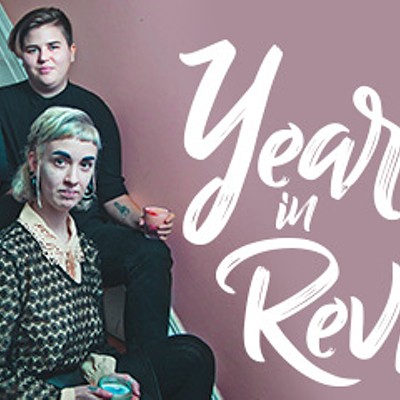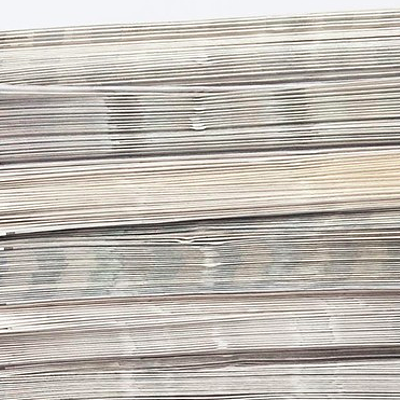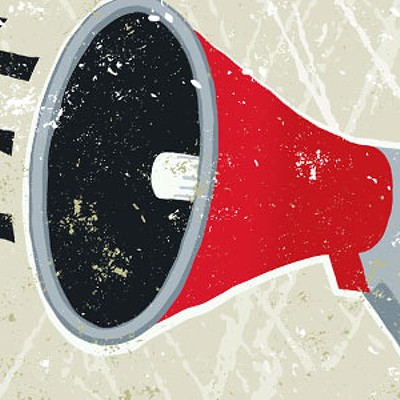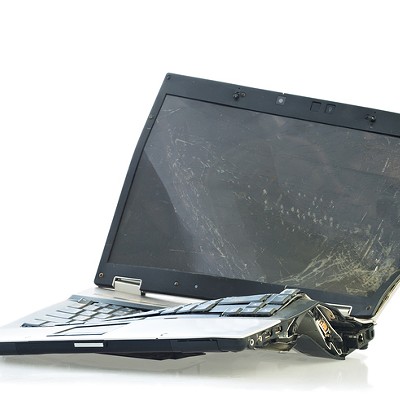So it was reasonable and right for the Mi'kmaq community to bring this issue forward. It is a large community which has suffered a series of historic wrongs, right into the present, and it asked for a small act---not of redress---but of simple acknowledgement of past wrongs done to it.
Simple decency calls for removing the name.
And yet, many in the larger community have objected. The objectors either do not see---or discount as unimportant---the crux of the issue, which is the dispossession of an entire people of their land, their language, their governments, their culture, which started with Cornwallis, the very first Englishman to step foot in Chebucto, and who put a bounty on the scalps of the people who owned this place.
To claim some sort of historical "objectivity" by saying, as Rick Howe does, that "in those days wars were nasty affairs with atrocities committed by all sides" is not objective, but rather a perverse reading of history. The Mi'kmaq and Europeans did not meet on some vacant island in the middle of the Atlantic and decide to pointlessly murder each other. Rather, Europeans came here for their own geopolitical reasons of empire, and were happy to slaughter whoever stood in their way in order to control the land and all its products.
"People, who by our standards today, are seen as viciously anti-Indian, in the 1700s were seen as great patriotic soldiers who made it safe for whites to live in Nova Scotia," historian Jack Granatstein told the Canadian Press. "You can't apply today's standards to people of the past. That just gets silly."
But why should whites have had a right to "live safely" in 18th century Nova Scotia? More to the point, why should whites have had the right to murder the occupants of the land, steal their land and resources, break their economies and throw the survivors into quasi prison camps?
Am I "applying today's standards"? Well, given today's apparent right of "whites" to drop "freedom bombs," to displace millions of people, to torture, to force economic restructuring, et cetera, on any off-hue populace in the world, I'd say that standards haven't much changed. Maybe we should work on changing those standards.
When it's suggested that we not honour a genocidal agent of imperialism, some people become obsessive logisticians, suddenly minutely parsing and picking apart what they say are flaws in the argument. "Do we have to change the name of anything anyone objects to?" they say. "Who gets to determine what names are appropriate?" But when we see such arguments from afar---like when, for example, people object to the notion that the state of South Carolina should not fly the confederate flag on the statehouse--- we react differently. When some portly white lawmaker from the deep south says, "we can never satisfy these people; do we have to rename Jackson, Mississippi?" we see it for what it is: justifying continued racism behind the fig leaf of rationalism.
We seem to put the process leaf under the microscope while missing the racism forest.
That's not to say there aren't process issues, uncertainties and grey areas in the name-changing business. But here's a suggestion: How 'bout we in the white community work through those issues in a spirit of kindness and co-operation with the Mi'kmaq community, give pause and deep thought to how we have benefitted from historic wrongs, and how we have a responsibility to create a better world, instead of smugly accepting our position of privilege as the natural, inviolable state of things?

